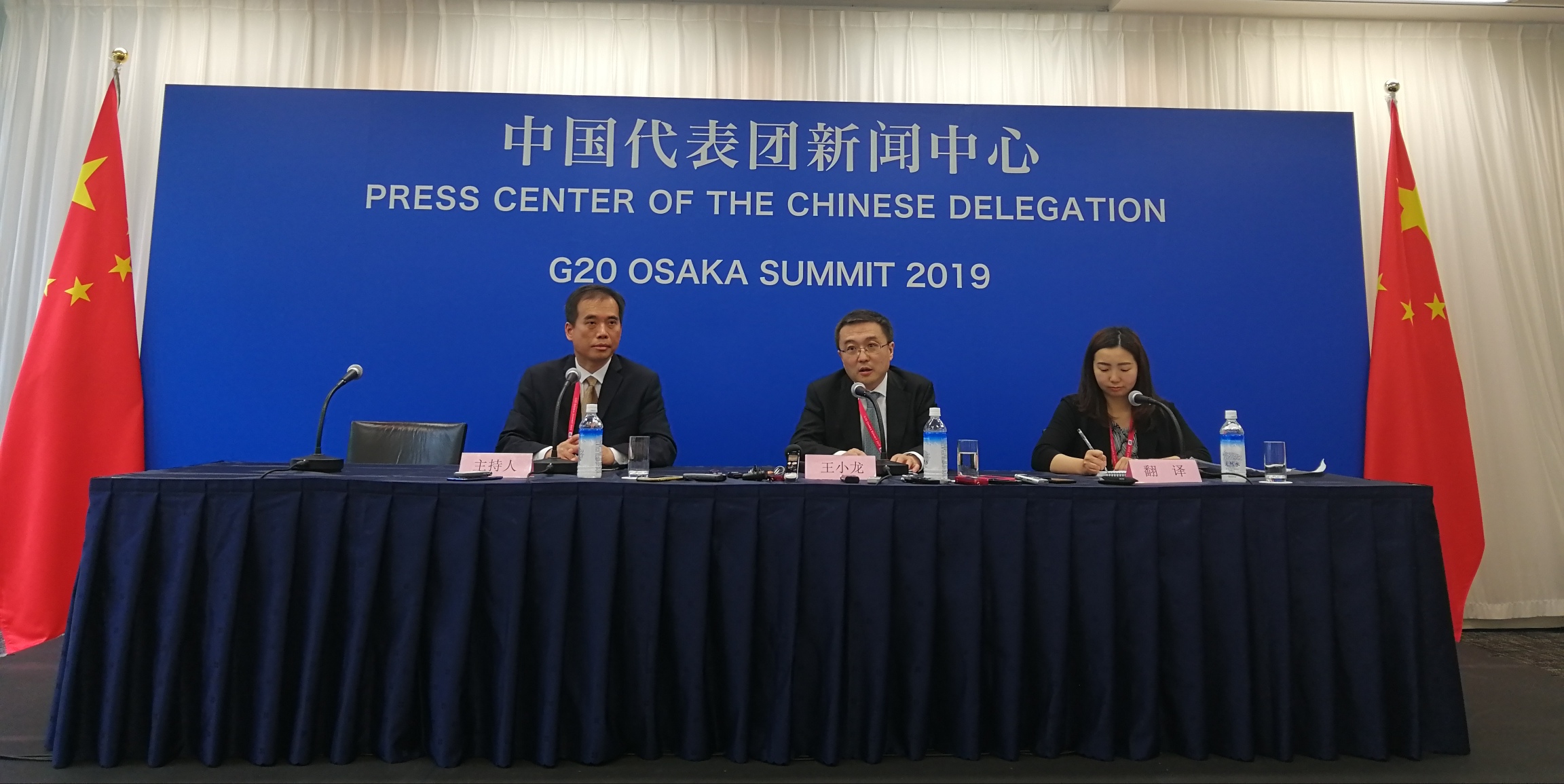China contributes to global governance at G20 summit
- By Zhang Liying
 0 Comment(s)
0 Comment(s) Print
Print E-mail China.org.cn, June 30, 2019
E-mail China.org.cn, June 30, 2019

China has contributed to global governance at the 14th Group of 20 (G20) summit in Osaka, Japan, said Wang Xiaolong, the Chinese Foreign Ministry's special envoy for G20 affairs on Saturday.
Speaking at a press briefing at the end of the summit, Wang said China has advocated the development of the digital economy and the application of new technologies.
"We have tried to include ideas on digital inclusiveness, internet-driven poverty alleviation and the building of a fair, equitable and non-discriminatory innovation environment into the 'G20 Osaka Leaders' Declaration,'" he said.
Wang said China had, for the first time, placed the issues of the "digital economy" and "innovation-driven economy" on the G20 agenda at the Hangzhou summit in 2016. "We are glad to see that these topics have been discussed at all the three subsequent summits."
China, France and the United Nations held a three-party meeting on the sidelines of the Osaka summit, reiterating their commitment to the Paris Agreement and closer international cooperation on climate change.
Wang added that the meeting had injected a strong impetus into the multilateral process created to deal with climate change.
Quality infrastructure, first mentioned in the leaders' communiqué at the G20 Hangzhou summit, was also among the key topics in this year's summit.
Wang added that the G20 Principles for Quality Infrastructure Investment endorsed at the summit are also greatly consistent with the consensus reached on the high-quality development of the Belt and Road Initiative at the second Belt and Road Forum for International Cooperation in Beijing this April.
At the summit, China further expressed its commitment to multilateralism and support for an open world economy, as well as the promotion of unity and cooperation to build a broader partnership network, he added.





